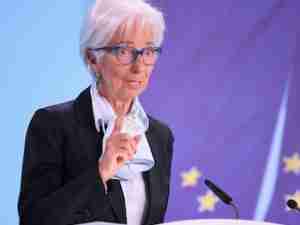European companies accuse Chinese rivals of benefiting from unfair state aid allowing them to dump about 21 billion euros ($28 billion) worth of solar panels at below cost in Europe last year, putting European firms out of
business.
The solar dispute, by far the biggest between
Chinaand the EU, threatened a wider trade war in goods from
wineto
steeluntil Brussels and Beijing agreed a minimum price for panels from China in late July and eased tensions.
But a nine-month investigation by the European Commission into China's solar industry has found Beijing broke World Trade Organization rules by handing out cheap loans, land, interest-free credit lines and tax breaks to companies, people with knowledge of the situation told Reuters.
"There are clear indications that (Chinese) government policy influences the decision-making of the
bankswhen deciding on the terms of financing to solar companies," said one person who declined to be named because the findings are not public.
A second person said Beijing, as well as Chinese and EU manufacturers, had been given the results of the investigation.
Under EU law, the Commission cannot impose more sanctions on Chinese solar exporters following the deal to set a price floor, but its investigation could influence EU free-trade advocates such as
Germanyand Britain that oppose limits on Chinese goods.
Wary of offending China's leaders and losing
businessin the world's second largest
economy, Berlin and London have argued that concerns about Chinese solar dumping are secondary to the much larger EU-China trade relationship.
Europe is China's most important trading partner, while for the EU, China is second only to the United States.
Chinese solar panel production quadrupled between 2009 and 2011 to more than the world's entire demand as it took advantage of a growing market for green energy to tackle climate change.
Chinese companies deny receiving illegal subsidies, saying economies of scale allow them to sell at lower prices than their European rivals.
Beijing has also accused Europe of subsidizing its solar industry. The European Union says aid to final users of solar energy is lawful to stimulate green energy, arguing China is wrong to directly help companies to produce solar products.
EU governments must decide in December whether to back the July price deal brokered by EU Trade Commissioner Karel De Gucht so it can run until 2015. It was seen as a compromise in dealing with China because a majority of EU governments were against prohibitive duties on Chinese solar panels.
The Commission's investigation could also have implications for Chinese telecoms companies that De Gucht, who has said China subsidizes "nearly everything", has publicly accused of dumping products in Europe.
De Gucht, who handles trade issues for the European Union's 28 members, has threatened to launch an investigation that could lead to hefty duties on Chinese telecoms companies' equipment. (Reuters)
